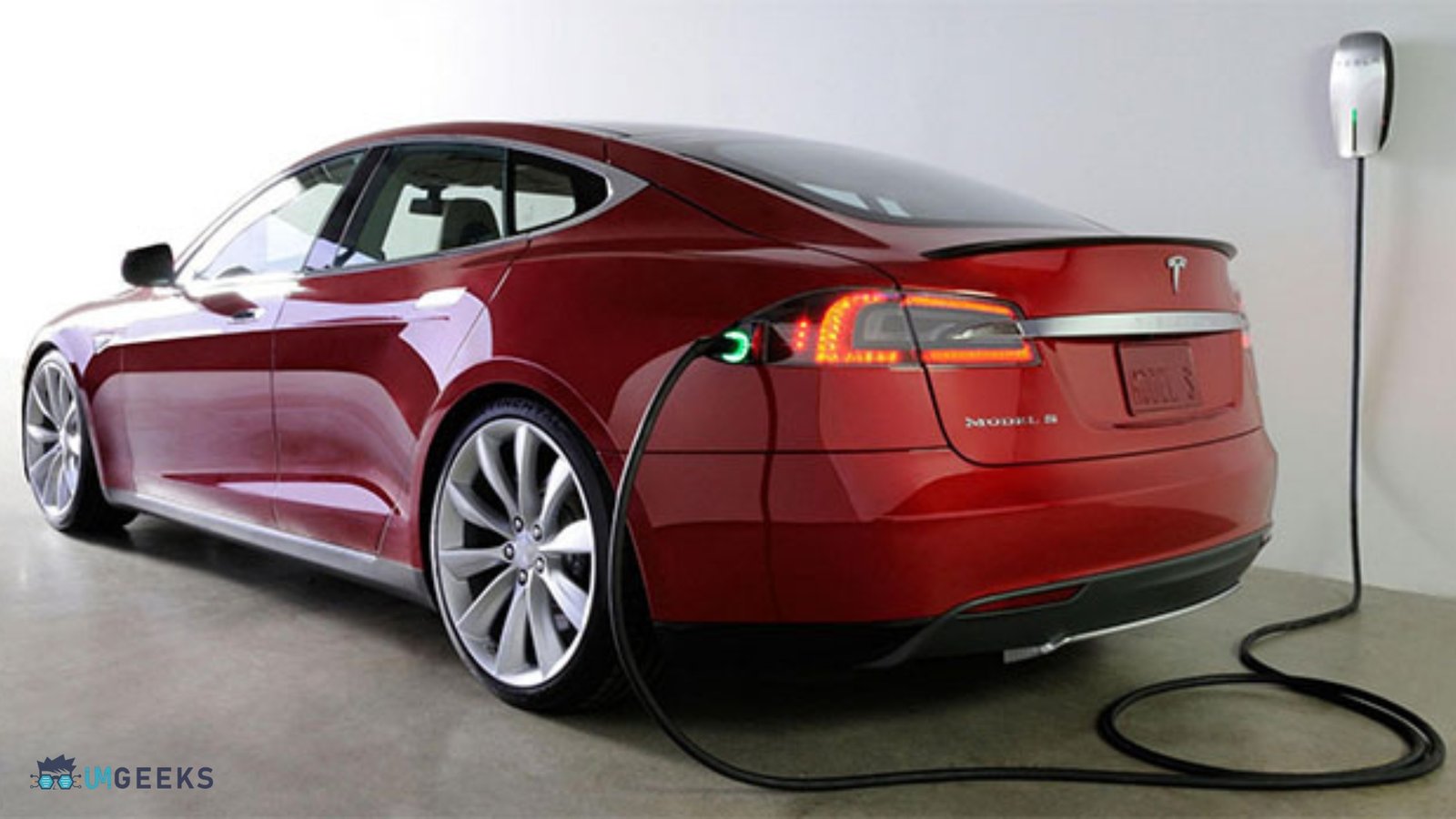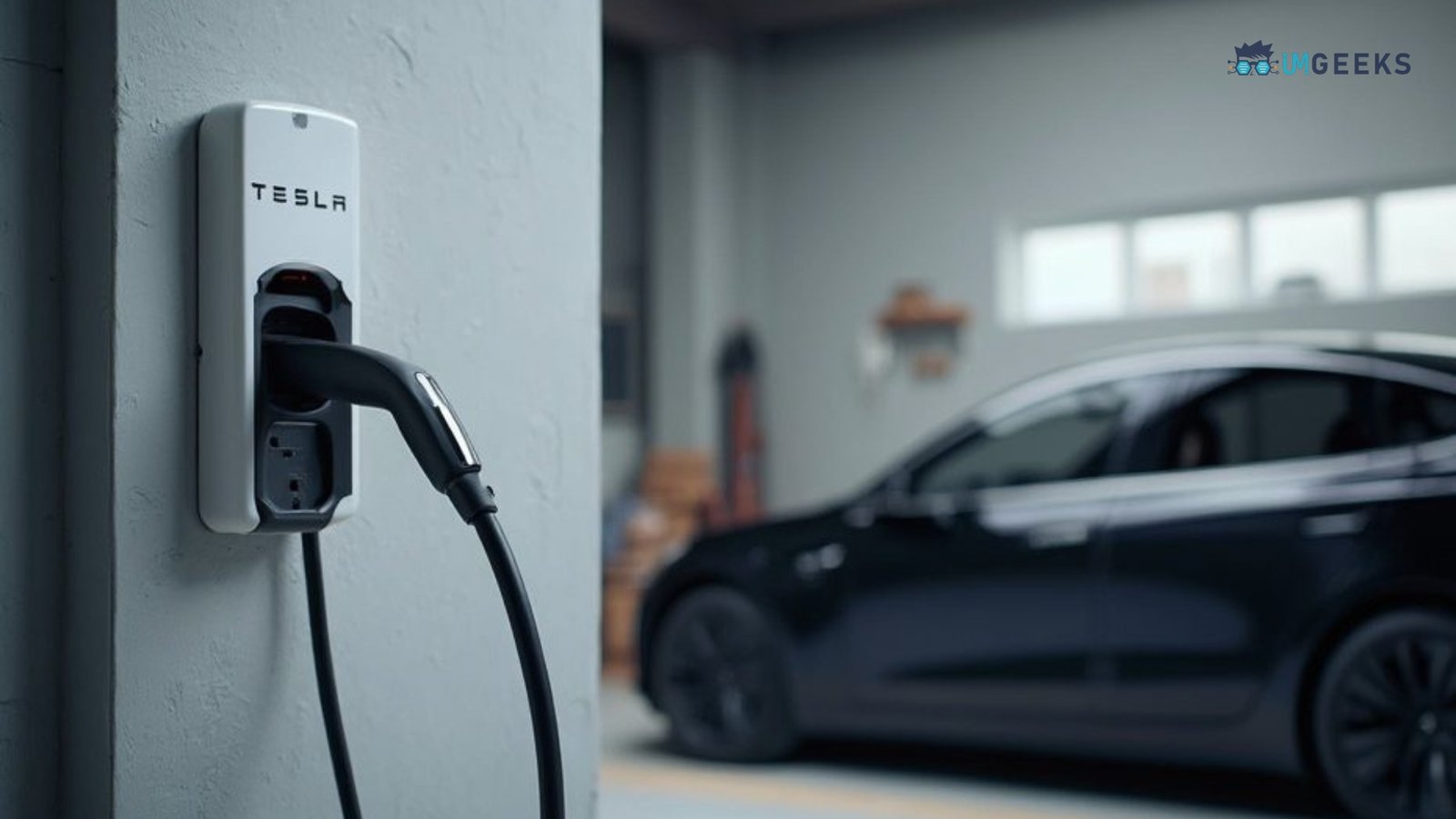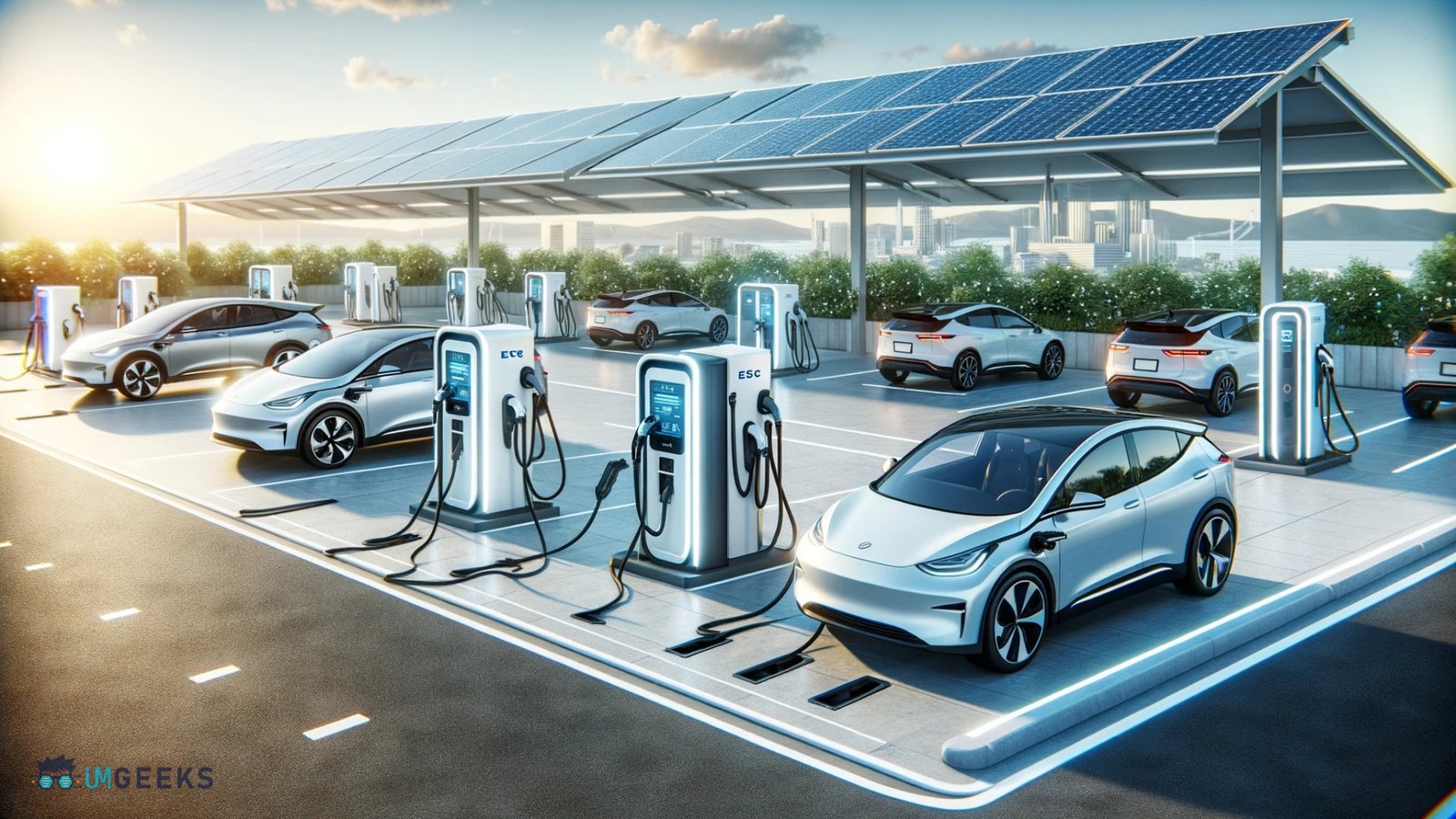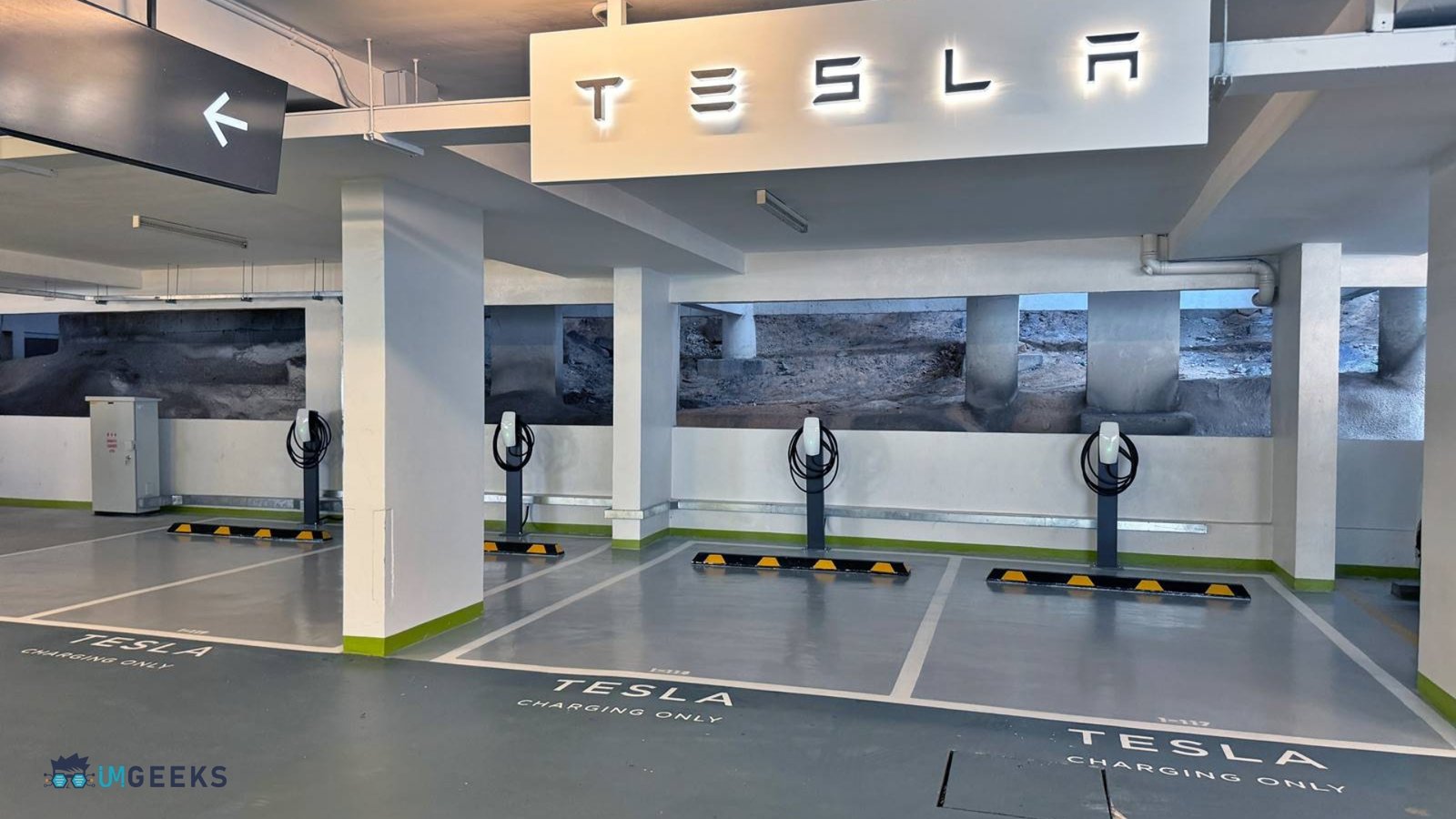Tesla charging station installation has become increasingly important as electric vehicle adoption accelerates worldwide. Whether you’re a Tesla owner looking to install a home charging solution or a business owner considering commercial Tesla charging infrastructure, understanding the installation process is crucial for making informed decisions.
The demand for Tesla charging stations continues to grow exponentially, with millions of Tesla vehicles on the road requiring reliable charging solutions. Professional charging station installation ensures optimal performance, safety compliance, and long-term reliability for your electric vehicle charging needs.
This comprehensive guide covers everything you need to know about Tesla charging station installation, from initial planning and permit requirements to equipment selection and professional installation services. We’ll explore both residential and commercial installation scenarios to help you navigate this essential aspect of Tesla ownership.
Tesla Charging Station Types
Before diving into Tesla charging station installation, it’s essential to understand the different types of charging equipment available. Tesla offers several charging solutions, each designed for specific use cases and installation requirements.
Tesla Wall Connector
The Tesla Wall Connector represents the most popular choice for home charging station installation. This hardwired charging solution delivers up to 48 amps of power, providing significantly faster charging speeds compared to standard outlet charging. The Wall Connector features a sleek design that complements any garage or outdoor installation location.
Professional charging station installation of a Wall Connector typically requires a dedicated 240-volt circuit and appropriate electrical infrastructure. The installation process involves mounting the unit to a wall, connecting it to your home’s electrical panel, and configuring the charging settings through the Tesla mobile app.
Mobile Connector
Tesla’s Mobile Connector offers flexibility for Tesla owners who need portable charging solutions. While not requiring permanent charging station installation, the Mobile Connector can utilize various outlet types, from standard 120-volt household outlets to 240-volt NEMA outlets.
The Mobile Connector’s adaptability makes it useful for Tesla charging station installation in temporary locations or as a backup charging solution. However, charging speeds are generally slower compared to hardwired Wall Connector installations.
Destination Charging
Destination Charging represents Tesla’s commercial charging station installation program for businesses, hotels, restaurants, and other public venues. These installations use Tesla Wall Connectors configured explicitly for public access, allowing Tesla owners to charge while conducting business or leisure activities.
Commercial charging station installation through the Destination Charging program often involves multiple charging units, advanced electrical infrastructure, and coordination with Tesla’s network management systems.
Tesla Charging Station Installation Requirements
Successful charging station installation depends on meeting specific electrical, structural, and regulatory requirements. Understanding these prerequisites ensures smooth installation and optimal charging performance.
Electrical Requirements
Charging station installation requires adequate electrical capacity and proper circuit protection. Most residential installations need a dedicated 240-volt circuit with appropriate amperage ratings based on the chosen charging equipment.
The electrical panel must have sufficient capacity to support the additional load from the charging station installation. In some cases, panel upgrades may be necessary to accommodate the charging infrastructure safely and efficiently.
Professional electricians conducting charging station installations must ensure proper grounding, circuit protection, and compliance with local electrical codes. These requirements vary by location but consistently emphasize safety and system reliability.
Permit Requirements
Tesla charging station installation often requires electrical permits from local authorities. Permit requirements vary significantly by municipality, with some areas requiring detailed installation plans and others accepting standard permit applications.
The permit process for charging station installation typically involves submitting electrical plans, paying permit fees, and scheduling inspections. Professional installation companies usually handle permit applications as part of their comprehensive service offerings.
Understanding local permit requirements before beginning charging station installation helps avoid delays and ensures compliance with regulatory standards. Some jurisdictions offer expedited permitting for electric vehicle charging infrastructure to encourage adoption.
Location Considerations
Selecting the optimal location for charging station installation involves evaluating multiple factors, including electrical access, vehicle positioning, weather protection, and aesthetic considerations. Indoor charging station installation in garages provides weather protection and security benefits. However, outdoor installations may be necessary when garage space is limited or electrical access is more convenient from exterior locations.
The chosen location for the charging station installation should allow easy vehicle access while maintaining adequate clearance for doors, people, and other vehicles. Consider future needs and potential expansion when selecting installation locations.
Home Tesla Charging Station Installation Process
Residential Tesla charging station installation follows a systematic process designed to ensure safety, efficiency, and optimal performance. Understanding each step helps homeowners prepare for installation and make informed decisions.
Initial Assessment
Professional Tesla charging station installation begins with a comprehensive site assessment. Qualified electricians evaluate your home’s electrical system, identify optimal installation locations, and determine necessary electrical upgrades.
The assessment phase of Tesla charging station installation includes examining electrical panel capacity, measuring distances from panels to proposed charging locations, and identifying potential installation challenges. This information forms the basis for accurate cost estimates and project planning.
During the assessment, installers also discuss your charging needs, vehicle usage patterns, and future expansion possibilities. This consultation ensures the Tesla charging station installation meets both current and anticipated requirements.
Electrical Upgrades
Many homes require electrical upgrades as part of Tesla charging station installation. Common upgrades include installing new 240-volt circuits, upgrading electrical panels, and enhancing grounding systems. The extent of electrical work varies significantly based on existing infrastructure and chosen charging equipment. Newer homes may require minimal upgrades, while older properties might need comprehensive electrical system improvements.
Professional Tesla charging station installation companies provide detailed estimates for necessary electrical work, helping homeowners understand total project costs and timeline requirements. These upgrades often improve overall home electrical capacity beyond charging needs.
Installation Execution
The physical Tesla charging station installation process typically takes 4-8 hours, depending on complexity and required electrical work. Professional installers begin by installing the necessary electrical infrastructure before mounting and connecting charging equipment.
Proper Tesla charging station installation involves precise measurement, secure mounting, and careful electrical connections. Installers test all connections, verify proper grounding, and configure charging settings according to manufacturer specifications.
Following installation, professionals conduct comprehensive testing to ensure safe operation and optimal performance. This testing phase of Tesla charging station installation includes verifying charging speeds, safety systems, and mobile app connectivity.
Final Inspection and Activation
Tesla charging station installation concludes with official inspections and system activation. Local electrical inspectors verify compliance with codes and safety standards before approving the installation for use.
After passing inspection, Tesla charging station installation professionals assist with system activation and user training. This includes configuring mobile app settings, demonstrating charging procedures, and providing maintenance guidance.
The final phase ensures homeowners understand their new charging system and can maximize its benefits. Professional installers often provide ongoing support and maintenance services for installed systems.
Commercial Tesla Charging Station Installation
Commercial Tesla charging station installation presents unique challenges and opportunities compared to residential projects. Businesses installing charging infrastructure must consider customer needs, electrical capacity, site layout, and ongoing maintenance requirements.
Site Planning and Design
Commercial Tesla charging station installation begins with comprehensive site planning and design. This process involves analyzing customer traffic patterns, determining optimal charging station quantities, and designing electrical infrastructure to support multiple charging units.
Professional design services for commercial Tesla charging station installation consider factors such as parking lot layout, electrical service capacity, accessibility requirements, and future expansion possibilities. Proper planning ensures efficient installation and optimal user experience.
The design phase of commercial Tesla charging station installation also addresses aesthetic considerations, signage requirements, and integration with existing site infrastructure. These elements contribute to successful charging station adoption and customer satisfaction.
Electrical Infrastructure Development
Commercial Tesla charging station installation typically requires significant electrical infrastructure development. This includes installing high-capacity electrical services, distribution panels, and individual circuits for each charging station.
The electrical requirements for commercial Tesla charging station installation often exceed residential projects by substantial margins. Multiple charging stations operating simultaneously create substantial electrical loads requiring careful planning and robust infrastructure.
Professional electrical contractors specialising in commercial Tesla charging station installation design systems that accommodate peak demand while maintaining efficiency and reliability. Load management systems may be necessary to optimise electrical usage across multiple charging stations.
Installation and Commissioning
Commercial Tesla charging station installation involves coordinating multiple trades, managing complex electrical work, and ensuring minimal disruption to business operations. Professional project management ensures timely completion and quality results.
The installation process for commercial Tesla charging station projects includes site preparation, electrical infrastructure installation, charging station mounting, and comprehensive system testing. Each phase requires careful coordination and quality control.
Commissioning a commercial Tesla charging station installation involves verifying proper operation, configuring network connectivity, and integrating with payment systems when applicable. This phase ensures charging stations are ready for customer use upon project completion.
Tesla Charging Station Installation Costs
Understanding Tesla charging station installation costs helps property owners budget appropriately and make informed decisions about charging infrastructure investments. Costs vary significantly based on installation complexity, electrical requirements, and chosen equipment.
Residential Installation Costs
Residential Tesla charging station installation costs typically range from $1,200 to $3,500, including equipment and professional installation services. Simple installations with existing electrical infrastructure fall toward the lower end of this range.
Homes requiring electrical panel upgrades or extensive electrical work may experience Tesla charging station installation costs exceeding $5,000. These projects involve substantial electrical infrastructure improvements that benefit overall home systems.
Factors affecting residential Tesla charging station installation costs include distance from electrical panels, chosen charging equipment, permit fees, and local labor rates. Professional installers provide detailed cost breakdowns to help homeowners understand project expenses.
Commercial Installation Costs
Commercial Tesla charging station installation costs vary dramatically based on project scope, electrical requirements, and site conditions. Single-station installations may cost $3,000 to $8,000, while multi-station projects can exceed $50,000.
The electrical infrastructure development required for commercial Tesla charging station installation often represents the most significant cost component. High-capacity electrical services, distribution equipment, and individual circuits create substantial expenses. Long-term operational costs should be considered alongside initial Tesla charging station installation expenses. Maintenance, electricity costs, and potential revenue generation from charging fees affect overall project economics.
Cost-Benefit Analysis
Evaluating Tesla charging station installation costs requires considering long-term benefits, including fuel savings, convenience, property value enhancement, and potential tax incentives. Many jurisdictions offer rebates or tax credits for charging infrastructure installation.
For businesses, Tesla charging station installation costs should be weighed against potential customer attraction, employee satisfaction, and marketing benefits. Charging stations can differentiate businesses and attract environmentally conscious customers.
The declining costs of Tesla charging station installation equipment and increasing availability of qualified installers continue to improve project economics. Future-proofing considerations may justify higher initial investments for expandable systems.
Choosing Professional Tesla Charging Station Installation Services
Selecting qualified professionals for Tesla charging station installation ensures safe, efficient, and code-compliant results. The complexity of electrical work and safety requirements make professional installation essential for most projects.
Installer Qualifications
Professional Tesla charging station installation requires licensed electricians with specific experience in electric vehicle charging infrastructure. Look for installers with Tesla certification, extensive EV charging experience, and positive customer reviews.
Qualified Tesla charging station installation professionals understand local electrical codes, permit requirements, and safety standards. They carry appropriate insurance and provide warranties on their installation work. Verify installer credentials, licensing status, and insurance coverage before selecting Tesla charging station installation services. Professional associations and manufacturer certifications indicate additional qualifications and commitment to quality work.
Service Offerings
Comprehensive Tesla charging station installation services include site assessment, permit handling, electrical work, equipment installation, and ongoing support. Full-service providers streamline the installation process and ensure coordinated project management.
Some Tesla charging station installation companies specialise in specific market segments such as residential or commercial projects. Others offer comprehensive services across all installation types and electrical capacity requirements. Compare service offerings, warranties, and ongoing support options when selecting Tesla charging station installation providers. Consider factors such as response times, maintenance services, and equipment replacement policies.
Project Management
Professional Tesla charging station installation involves coordinating permits, inspections, electrical work, and equipment delivery. Experienced installers manage these elements efficiently to minimise project delays and ensure quality results.
Effective project management for Tesla charging station installation includes clear communication, realistic scheduling, and proactive problem resolution. Professional installers keep customers informed throughout the installation process. Quality Tesla charging station installation services include comprehensive project documentation, warranty information, and user training. This documentation supports ongoing maintenance and warranty claims when necessary.
Maintenance and Troubleshooting
Properly installed Tesla charging stations require minimal maintenance but benefit from regular inspection and preventive care. Understanding maintenance requirements helps ensure long-term reliability and optimal performance.
Routine Maintenance
Tesla charging station installation includes guidance on routine maintenance requirements. Regular cleaning, visual inspection, and testing help identify potential issues before they affect charging performance. Professional Tesla charging station installation services often include maintenance plans or recommendations for ongoing care. These programs help protect your investment and ensure continued reliable operation.
Simple maintenance tasks such as cleaning charging connectors and checking for physical damage can be performed by users. More complex maintenance should be handled by qualified professionals familiar with Tesla charging equipment.
Warranty and Support
Professional Tesla charging station installation includes equipment warranties and installation workmanship guarantees. Understanding warranty coverage helps protect your investment and ensures access to professional support when needed.
Tesla charging equipment typically includes manufacturer warranties covering defects and performance issues. Professional installation services often provide additional warranties on their workmanship and electrical connections. Maintaining documentation from your charging station installation supports warranty claims and service requests. Keep installation records, warranty information, and service history readily accessible for reference.
Future Considerations and Technology Trends
Tesla charging station installation decisions should consider future technology developments and changing requirements. Planning for advancement helps maximise investment value and ensures long-term satisfaction.
Technology Evolution
Tesla continues advancing charging technology with improved speeds, enhanced connectivity, and new features. Future Tesla charging station installation may benefit from these technological improvements.
Consider expansion capabilities when planning Tesla charging station installation. Installing electrical infrastructure that can support future upgrades or additional charging stations provides flexibility for changing needs. Smart charging features, load management systems, and grid integration capabilities represent emerging trends in Tesla charging station installation. These technologies can optimize energy usage and reduce operational costs.
Regulatory Changes
Evolving regulations and building codes may affect future Tesla charging station installation requirements. Staying informed about regulatory trends helps ensure continued compliance and system performance. Many jurisdictions are implementing requirements for EV charging infrastructure in new construction and major renovations.
These regulations may affect future Tesla charging station installation planning and requirements. Tax incentives, rebates, and utility programs supporting Tesla charging station installation continue evolving. Monitor available incentive programs to maximize financial benefits from charging infrastructure investments.
Conclusion
Tesla charging station installation represents a crucial investment for Tesla owners and businesses supporting electric vehicle adoption. Professional installation ensures safety, reliability, and optimal performance while meeting all regulatory requirements.
Whether planning residential or commercial Tesla charging station installation, careful consideration of requirements, costs, and long-term needs helps ensure satisfactory results. Professional consultation and installation services provide the expertise necessary for successful charging infrastructure development.
As electric vehicle adoption continues growing, Tesla charging station installation will become increasingly important for property owners and businesses. Investing in professional installation services ensures your charging infrastructure meets current needs while providing flexibility for future requirements.
The future of transportation depends on reliable charging infrastructure, making professional Tesla charging station installation a wise investment in both convenience and environmental sustainability. Choose qualified professionals to ensure your charging station installation meets the highest standards of safety, performance, and reliability.
FAQs
Q: How much does a Tesla charging station installation cost for a typical home?
Tesla charging station installation costs typically range from $1,200 to $3,500 for residential properties. The Tesla Wall Connector costs around $400-$500, with installation labor and electrical work comprising the remaining expenses. Homes with existing 240-volt circuits near the installation location fall toward the lower cost range. Properties requiring electrical panel upgrades or extensive electrical work may exceed $5,000. Additional factors include permit fees ($50-$200), distance from the electrical panel, and local labor rates.
Q: Do I need permits for Tesla charging station installation, and how long does the process take?
Yes, most Tesla charging station installation projects require electrical permits from local authorities. The permit process involves submitting installation plans, paying fees ($50-$300), and scheduling inspections. Professional installers typically handle permits as part of their services. The complete Tesla charging station installation timeline takes 2-6 weeks from consultation to activation. Actual installation work takes 4-8 hours, but permits and inspections extend the overall timeline.
Q: Can I install a Tesla charging station myself, or do I need a professional electrician?
Tesla charging station installation requires a licensed electrician due to electrical complexity and safety requirements. While Mobile Connectors plug into existing outlets, Wall Connector installation involves hardwired connections requiring professional expertise. DIY installation can result in code violations, safety hazards, and voided warranties. Professional Tesla charging station installation ensures code compliance, safety, and optimal performance with installation warranties.
Q: What electrical requirements are needed for Tesla charging station installation?
Tesla charging station installation requires a dedicated 240-volt circuit with appropriate amperage (15-60 amps). Most residential installations use 50-60 amp circuits for maximum charging speed. Your electrical panel needs sufficient capacity, typically 100-amp minimum service (200-amp preferred). The installation location should be within 50-100 feet of the electrical panel. Proper grounding, GFCI protection, and circuit breakers are mandatory safety requirements.
Q: How do I choose the right location for Tesla charging station installation?
Optimal Tesla charging station installation locations balance electrical access, vehicle positioning, and weather protection. Indoor garage installations offer security and weather protection, while outdoor installations may be necessary for space or electrical access. Consider the 18-foot charging cable length, adequate clearance for vehicles and people, and future expansion needs. Professional consultations help evaluate these factors for optimal placement.









